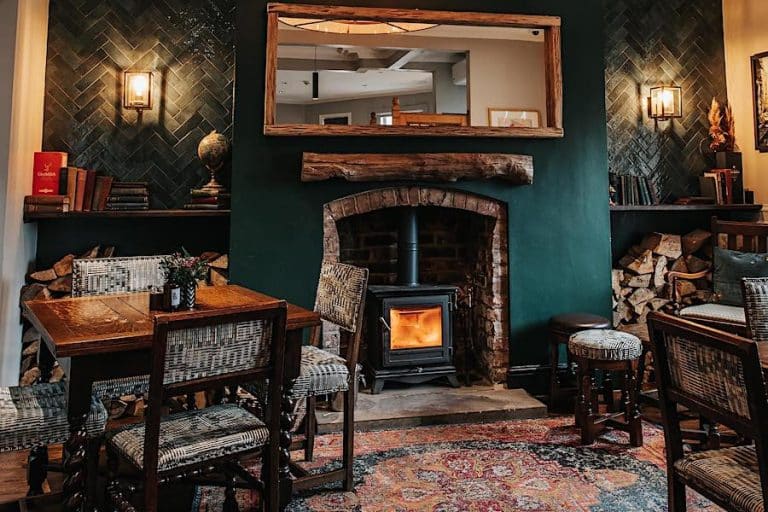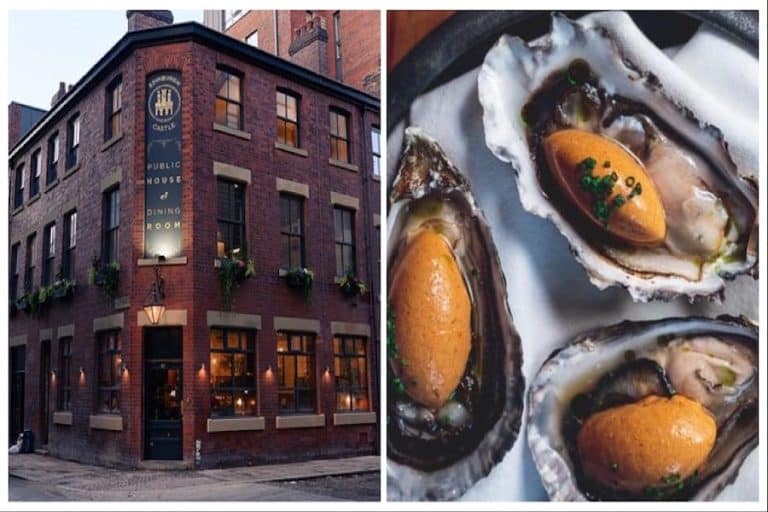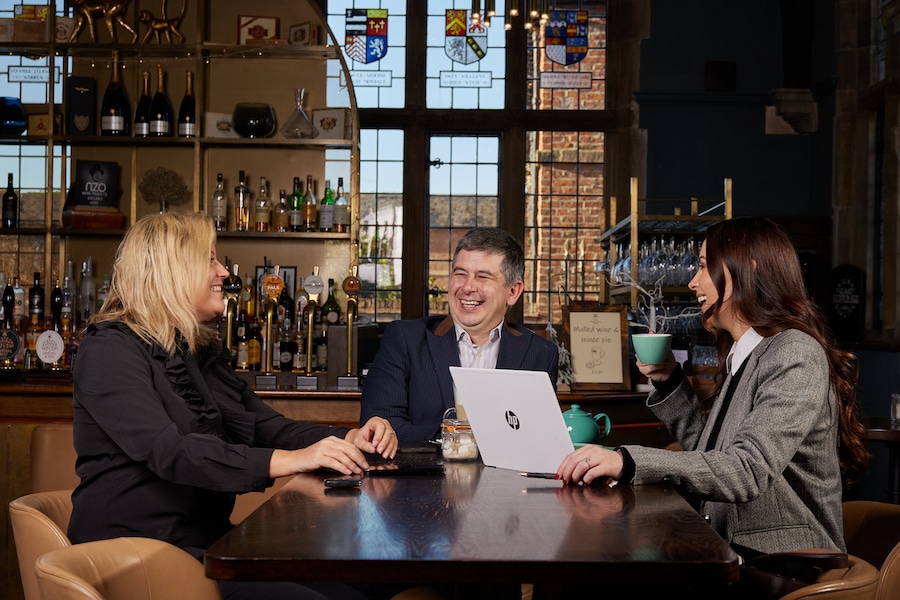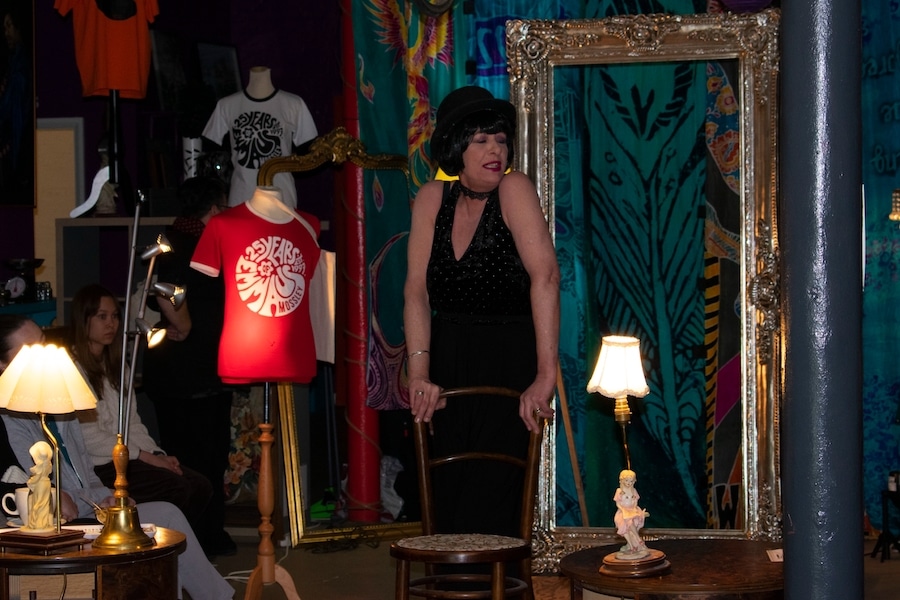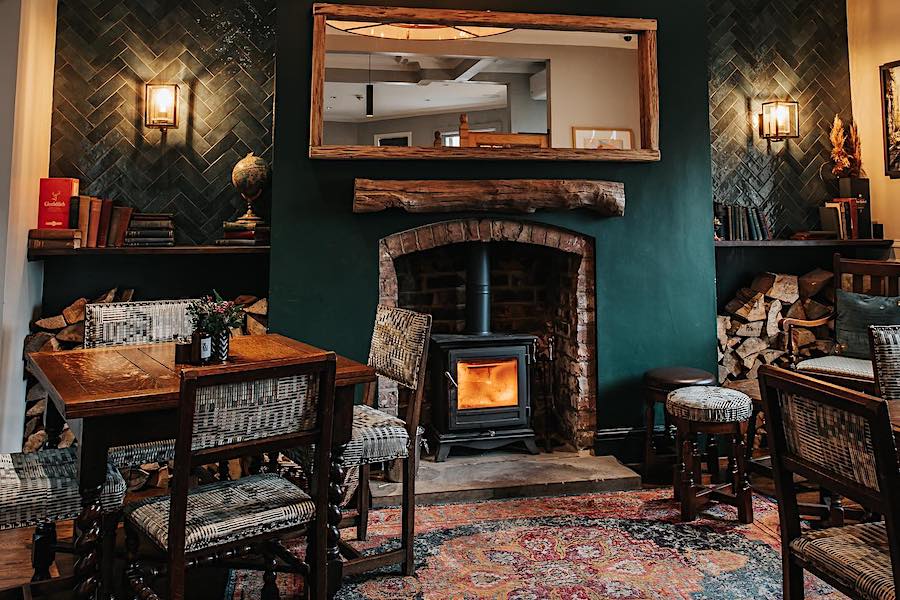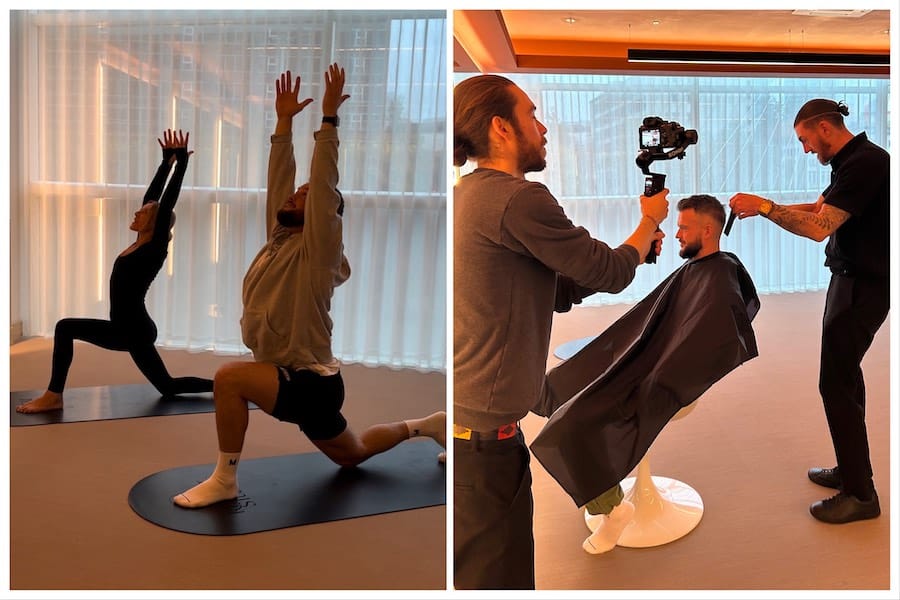From academia to the Amazon: one student’s trip of a lifetime
- Written by Ana Iliescu
- Last updated 6 years ago
- City of Salford, People, Students, Travel & Hotels
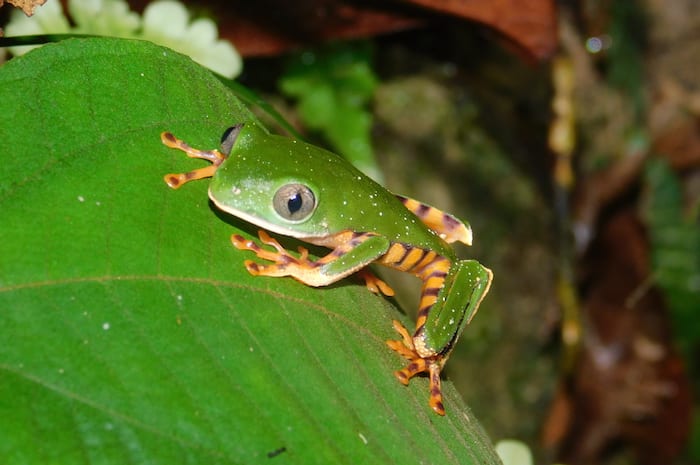
When you think about uni trips, your mind probably wanders to Wales or the Lake District rather than the Amazon rainforest.
However, a group of students and lecturers from the University of Salford actually went to Brazil as part of their tropical ecology field course. Which beats any indoor lecture. Ever.
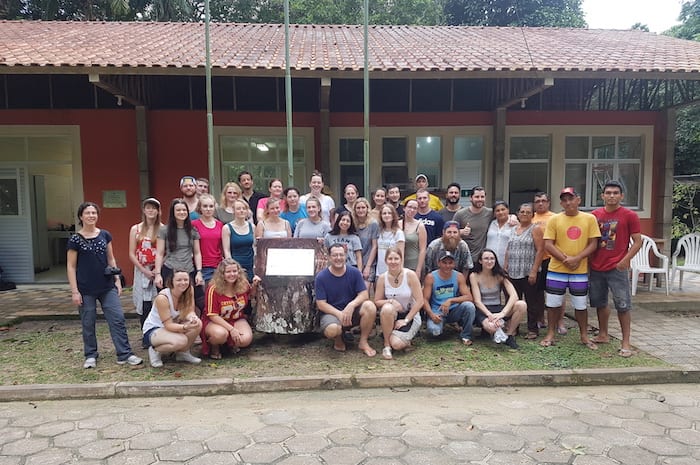
Not only did they spot endangered animals on the brink of extinction and explore a variety of tropical ecosystems, but they also got to swim with dolphins and play football with an indigenous community.
I know. Why didn’t you choose to study ecology, you’re now wondering..?
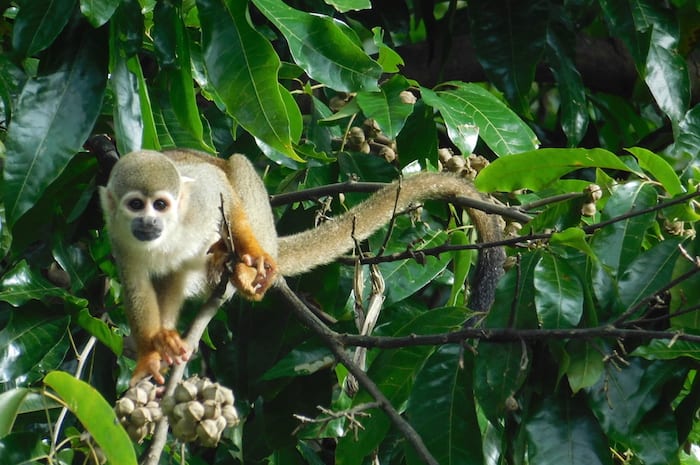
Natasha Woest, 33, is one of the students who went there, and she found the two weeks’ experience extraordinary.
The group spent their first week in Reserva Ducke, 10,000 hectares of protected area on the outskirts of the Brazilian city of Manaus. Due to extensive habitat fragmentation and extensive deforestation, they needed a government permit to get there.
Back home, Natasha has been giving talks at the university to raise awareness about the importance of the rainforest and is hoping to continue her travels to Borneo and Mozambique later this year.
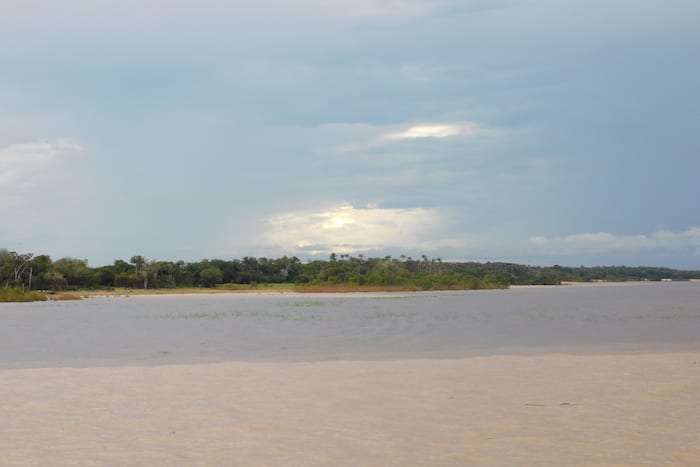
“In the first week it was all about getting introduced to the environment. Obviously coming from the UK made it quite difficult for us to get used to the tropical weather, with the humidity, the temperature and the rainfall.
“The temperature was only 25 degrees, but the 100% humidity made it extra hot.
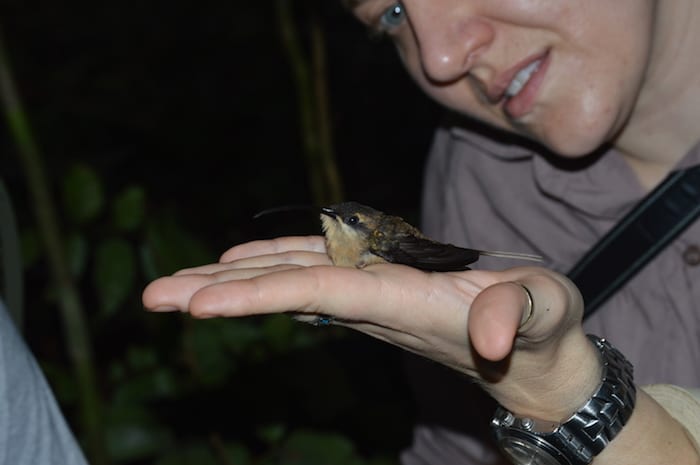
“It wasn’t raining the first day we were there so we could just walk through the forest and actually learn about its structure, the sub traits, what kind of animals you see.
“Then we found out about everything that lives in the river. There were no piranhas or anything in there, but we did find a wolf fish which can give a ferocious bite.
“First week we looked at the vegetation structure and we conducted invertebrates, birds and fish surveys.
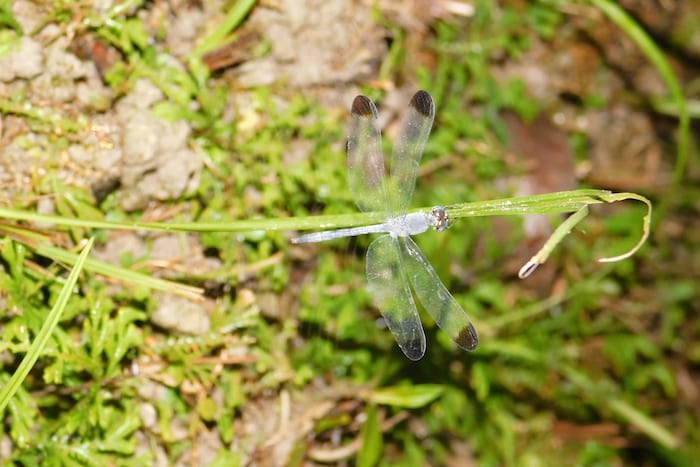
“It didn’t feel dangerous at all. You know when you walk through British woodlands and you don’t feel threatened? So it felt just like that, only with a lot more vegetation.
“But you do think sometimes, ‘there are snakes in here, I could come across a very poisonous one’. Or equally it could be a spider or an ant that could bite me and I could have an allergic reaction to it. But you don’t really feel threatened. I don’t think any of us did.
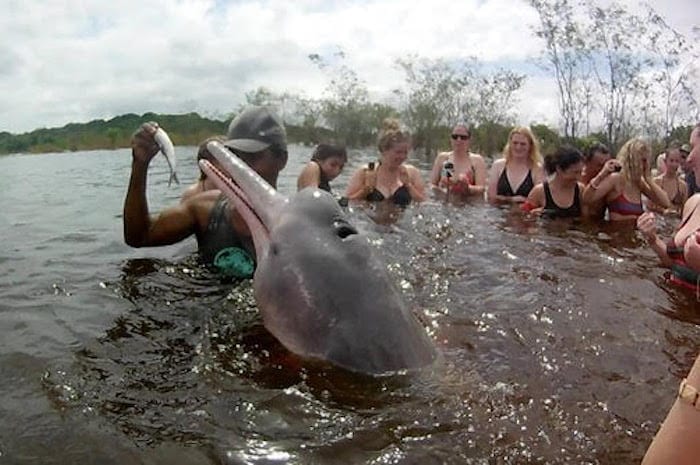
“The second week we were on the Amazon River and the most exciting thing was swimming with the pink dolphins.
“People used to cut down the trees in the area and hunt the dolphins for meat. Now, to encourage eco tourism, they let the dolphins swim free in the river, but they feed them at a particular point in the day and they train them to come to a specific area.
“So we got to be in the water with them and watch them feed them. We weren’t allowed to touch them, but we were allowed to be in their presence.”
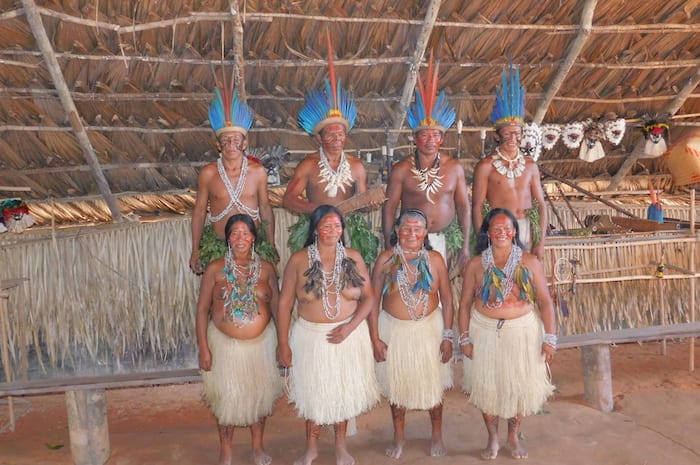
“We went to see a local tribe, and it was just like everything you see in films. The chief of the tribe took us in this big arena and told us different stories and then did a dance for each and every one of them; and then they asked the students to join them.
“They speak over 20 languages within the tribe and they don’t dress in western clothing, but use big leaves and stuff like that instead. They also wear bone-sculpted accessories. The typical ‘how we envision it’ – that is how they dress every day, not just for the tourists.
“To make some income they also sell some of the jewellery pieces, ornaments and dream catchers they make.
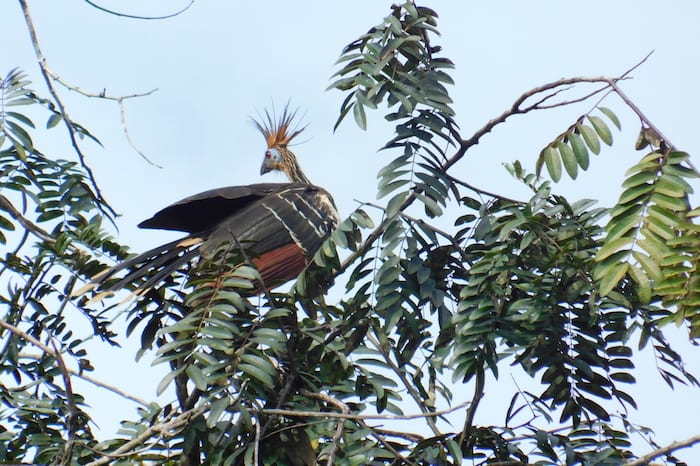
“Everyone thinks, when they hear about the rainforest, that you’ll walk in and be attacked by a jaguar or by loads of spiders and there will be snakes everywhere. And it’s clearly not the case. Everything hides away from you.
“You’re not going to go there and see the abundance of nature – you actually go there and have to try really hard to find anything.”
- This article was last updated 6 years ago.
- It was first published on 20 February 2018 and is subject to be updated from time to time. Please refresh or return to see the latest version.
Did we miss something? Let us know: [email protected]
Want to be the first to receive all the latest news stories, what’s on and events from the heart of Manchester? Sign up here.
Manchester is a successful city, but many people suffer. I Love Manchester helps raise awareness and funds to help improve the lives and prospects of people across Greater Manchester – and we can’t do it without your help. So please support us with what you can so we can continue to spread the love. Thank you in advance!
An email you’ll love. Subscribe to our newsletter to get the latest news stories delivered direct to your inbox.
Got a story worth sharing?
What’s the story? We are all ears when it comes to positive news and inspiring stories. You can send story ideas to [email protected]
While we can’t guarantee to publish everything, we will always consider any enquiry or idea that promotes:
- Independent new openings
- Human interest
- Not-for-profit organisations
- Community Interest Companies (CiCs) and projects
- Charities and charitable initiatives
- Affordability and offers saving people over 20%
For anything else, don’t hesitate to get in touch with us about advertorials (from £350+VAT) and advertising opportunities: [email protected]

“A once in a lifetime opportunity” Bolton’s bid to host the Ryder Cup still ‘alive’

How creative therapy at The Christie is changing lives for the better







